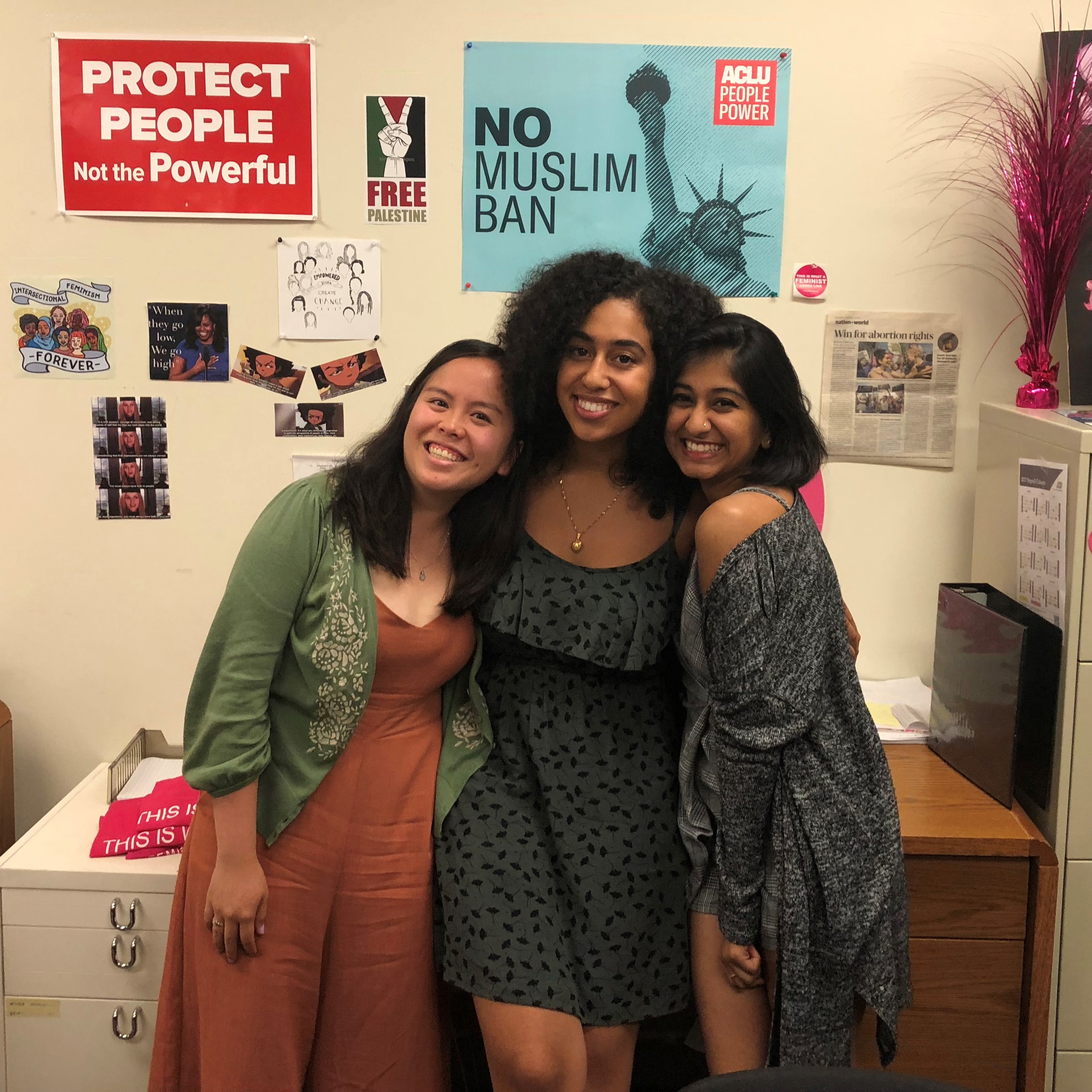Note: In this article, I am mainly speaking about East Asians when I use the term “Asian American.” My experiences, feelings, and opinions as a Chinese-American do not represent everyone who would identify as “Asian American” because there are many identities that exist under the broad term.
Recently, I finally saw the movie Sorry To Bother You. The film is incredible for a number of reasons (such as how it scrutinizes capitalism and has a mostly non-white cast), but, for me, one of the most compelling aspects about the film is the character Squeeze. As the working conditions grow bleaker, Squeeze ends up leading the resistance against corporate greed, advocating loudly for unionization.
What drew me to Squeeze was the fact that I finally saw an Asian American character be unapologetically political. In one scene, he is standing above a crowd with a megaphone in hand, rallying everyone by leading cheers and calling for action. Seeing an Asian American being vocal and engaged in politics was incredible, and sadly, too rare.
In recent years, Asian Americans have become one of the fastest growing minorities in America, yet our representation in overall society is minimal, especially in politics. Of all the 535 members of Congress, there are only 15 Asian Americans, with 12 in the House and 3 in the Senate. One of the reasons Asian Americans are not as involved in politics is because of the harmful stereotype that presents them as only caring about academics and economic success, more formally known as the “model minority” myth. We are viewed as the “American Dream” put in action. The “model minority” myth is problematic and harmful, with one of the most destructive aspects being how it presents Asian Americans as apolitical. Politics and social justice are perceived as secondary and not as worthwhile, leading to a diminished passion for political engagement.
While Asian American communities have internal reasons for not getting involved in politics, there are also outside factors that discourage and alienate their voices. First off, politicians from both political parties often ignore Asian American communities and their issues when campaigning. With less outreach, Asian Americans feel excluded from political spaces and are less likely to go to the polls for candidates who do not appear interested in their lives. In addition, because many Asian Americans are foreign-born, their limited English proficiency creates an obstacle for voting. How can Asian Americans be expected to vote when the whole process, ranging from registration to the actual ballot, is not clearly communicated or understandable? Despite the Voting Rights Act requiring translated material to be accessible, the necessary documents are rarely available and/or the voting locations are unable to help non-English speaking citizens. So while there are personal explanations for Asian Americans overlooking politics, minimal effort has been exerted to include us, which perpetuates the cycle of detachment.
***
Throughout the summer, I attended a lot of panels, protests, and rallies related to a wide range of political issues, from reproductive justice to immigration. House members and Senators joined us to vocalize their support and listen to their constituents. However, while attending these events and demonstrations, I noticed the lack of Asian American politicians.
I had yet to see anyone who even looked a little like me until I went to a protest at the Supreme Court and Senator Mazie Hirono of Hawaii spoke about rejecting Judge Brett Kavanaugh’s nomination. As the child of Japanese immigrants, Senator Hirono is one of four women of color senators, of which three are Asian American and Pacific Islanders. Her words were inspiring but, as a young Asian American woman who is passionate about politics and intersectional feminism, for me her mere presence in front of that crowd in the nation’s capital was much more profound.
A few weeks later, I participated in a day of lobbying with West Coast representatives and one of our stops was to Rep. Judy Chu’s office. After being elected in 2009, she became the first Chinese American woman to serve in Congress and since her induction, she has fought for progressive change for all Americans, especially those most marginalized. As I waited for our meeting, I looked around the office and was moved by all the pictures of Rep. Chu meeting with politicians, nonprofit organizations, and constituents. Growing up, I was not exposed to government officials that embodied Asian Americans’ lives and experiences, which maintained our erasure from politics. I did not realize how much representation mattered until I sat in the congressional office of a politician who resembled me.
People often talk about the importance of diverse representation when referring to the media, and this summer’s movie releases show Hollywood’s (slow) growth. With a wider range of stories being told and having more actors resonate with a broader audience, there are signs that society is moving in the right direction. However, we need to recognize that representation matters not only in the media, but also in all parts of our lives, extending to healthcare, education, and politics. We need to have community leaders who understand and reflect our experiences in public and political spaces. We need role models who show that minority identities will not be sidelined anymore, because we deserve to have a seat at the table.


Can’t wait to read about your India experiences! What city will you be living in?